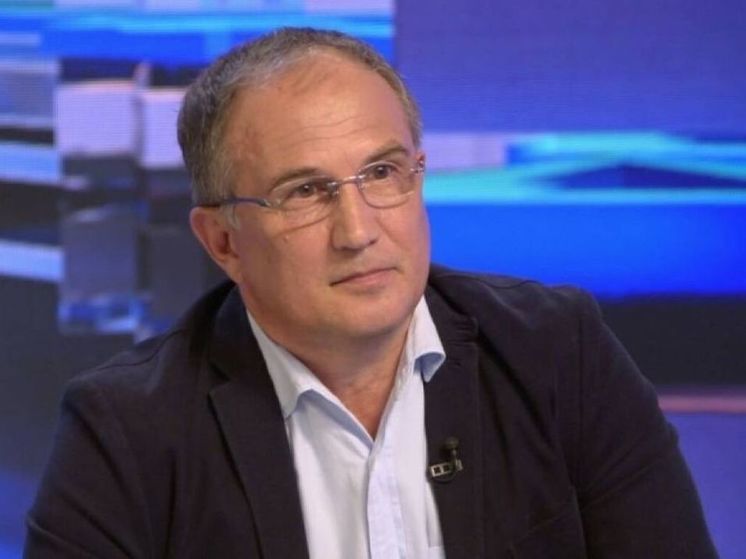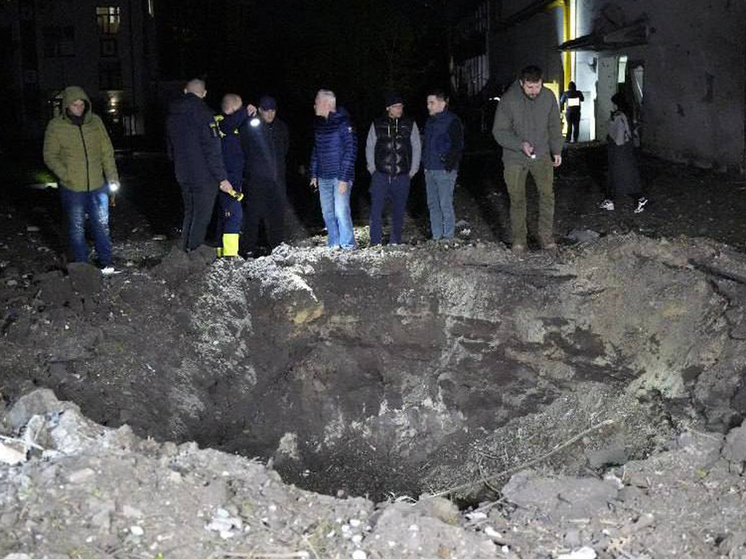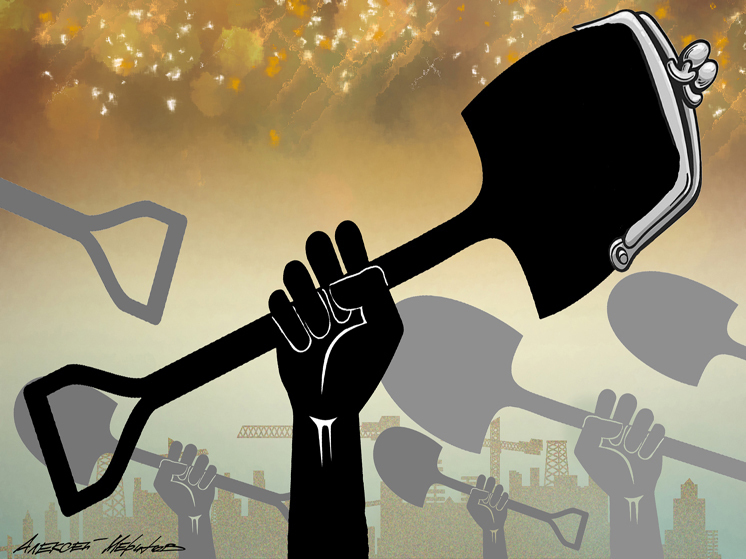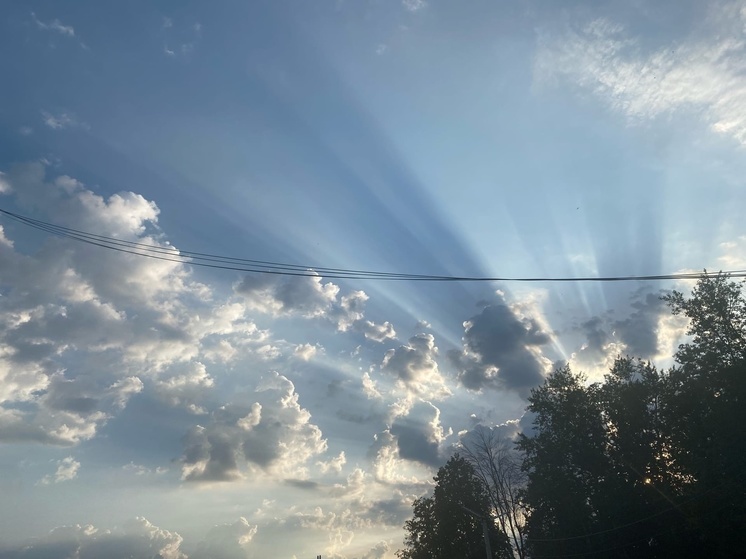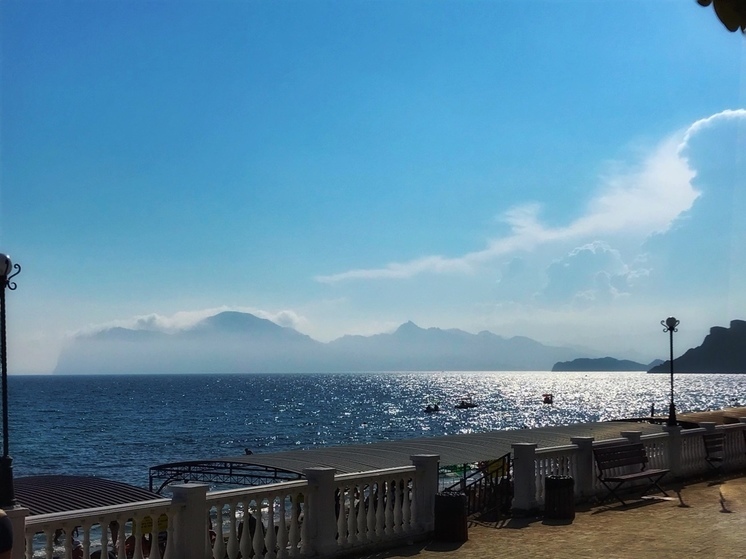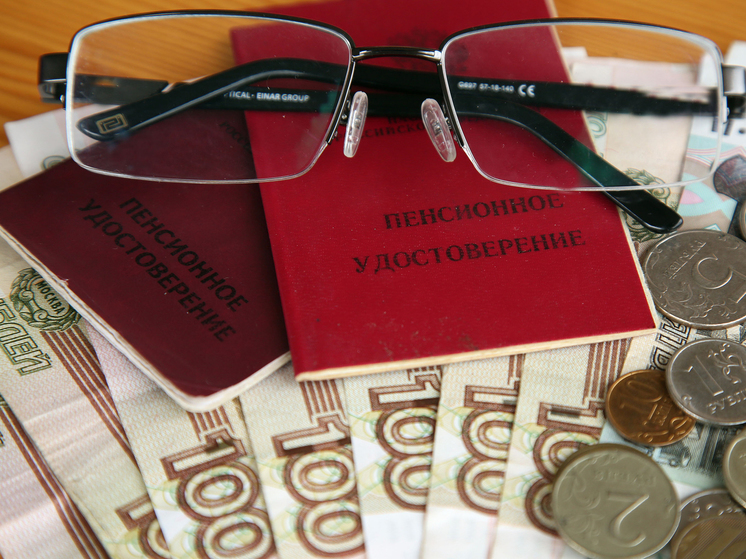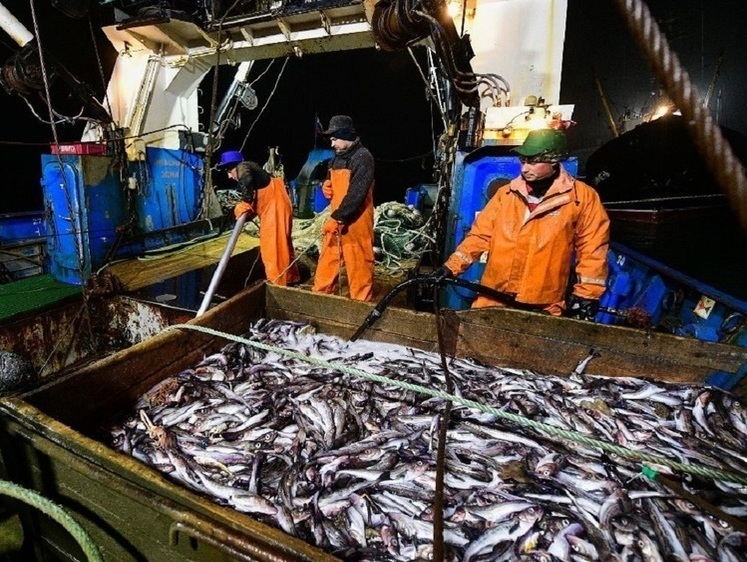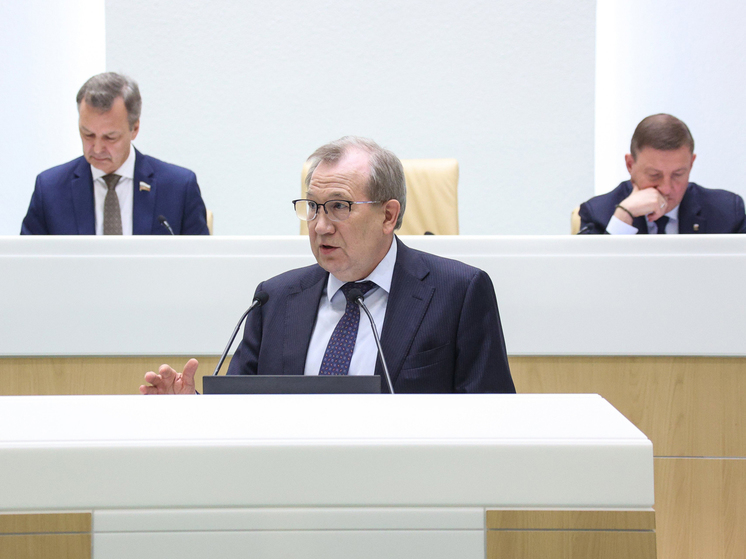
A fresh view
television, lost illusions, being good at your job, and freedom of choice.
Mr. Pozner, the state has grabbed a huge administrative resource, the main link in which is television. What is the level of censorship on ORT, where you have your program, ‘Vremena’?
Let’s make clear what we mean by “censorship”. Censorship in its true meaning, is the existence of a state organization (Glavlit in the USSR) that controlled what could be published or broadcast. That was real censorship. We no longer have that kind of censorship in Russia. To move on, are there any restrictions arising from state control of television? Yes, there are restrictions. The general directors of channels do get instructions and suggestions from the government. And as they work for the government, they comply. I would not say that control is much different to that of private proprietors over their channels. Simply several private channels would presuppose differing opinions among their owners and a variety of information available.
Unfortunately, the major channels are all controlled by the state. When people say we do not have opposition television I have to chuckle, there is no such thing as opposition television. There is opposition radio, newspapers.
As for my program, there is no censorship at the moment. I would be surprised, though, if none appears closer to the elections. In that case I will have to decide what to do. My reputation is paramount to me.
I try to be as objective as possible in my work, to ask questions on behalf of the viewer. I understand that the time may come when I do not have the opportunity. I don’t like to make a big fuss, but I have already quit State TV and Radio, when I could not and would not work in those conditions. True, the times were worse then. I am speaking theoretically of something like that happening. I do not feel any pressure from the management.
How do you think the change in ownership of the major channels has been reflected in the quality of television? What changes have taken place on the air?
That is a long conversation in itself. Today the technical and professional standard of Russian television is as good as anywhere. If one understands professionalism, as Gabriel Garcia Marquez said, as the ratio of journalistic professionalism to ethics, then separating professionalism and ethics is like separating a fly from its buzz: if it doesn’t buzz, it isn’t a fly.
If there are no ethics, there is no professionalism. In that sense, unfortunately, we do not have the highest quality product. There is a clear tendency to entertainment, even in news programs, and to copy America, and a condescending attitude to the viewer. I find that quite distressing. For the sake of ratings channels settle for the lowest common denominator, without trying to raise the level of viewership, they plunge to the lowest. I think that is the main problem in Russian television.
Given that the channels are controlled by the state, it probably should not distance itself from their ideological content. In your view, what is the government’s ideology?
I don’t think today’s government really has one. Certainly if one defines ideology as a program of action. I get the feeling that a lack of unity in the government prevents it from setting priorities and targets. One question is, what came first, the ideology or the target?
Yeltsin, for example, had a target of destroying the previous system. An ideology should be constructive.
What is the reason for the blurred targets?
Let’s start with how Vladimir Putin became president. It is no secret that he followed a path completely different from that of a politician in becoming president. Putin came from nowhere due to political games among the people that controlled the previous government.
Boris Yeltsin, despite his drawbacks, was a person of considerable strength, unpredictable and temperamental. But he was elected by the media and financial backing from certain groups, which made him to some degree dependent on those people. The more he fell apart, the greater their power became. They thought they found successor they could control. Perhaps Boris Berezovsky played the leading role in that process. I think that choice was the biggest mistake of his life.
It quickly became clear that Vladimir Putin is an independent person. He managed to outfox Gusinsky and Berezokvsky, maybe sometime history will tell us the details. But Putin did not come to a tabula rasa, the organization was fully formed. And he took some time to find his feet. I think that he has done a colossal amount for his first term, considering he arrived with his hands tied.
Given the contradictions in the government today, there is no point hoping for clear priorities and purposes at the basis of some underlying ideology. I don’t think that is Putin’s fault. Although as a journalist I am always antiauthoritarian. We started our relation with differences.
What are the main achievements of the Putin’s first presidential term?
In my view, one of the main results is the support of the majority of Russians. He has managed to unite the country to a considerable degree. That is very important, because when the people do not trust their leader, there is no reason to hope for change for the better. I am not making parallels, but why did Nazi Germany achieve such results? Because the absolute majority of the German people believed in Hitler. Why was Roosevelt elected four times, because the people believed him. The trust factor is vital.
Finally, look at how attitudes around the world are changing towards Russia. That is down to Putin, he has restored Russia’s reputation as a country that has to be taken into account. Those are his two main achievements.
How do you rate the degree to which business has united around Putin? Do you think that the support of big business will play a decisive role in his victory?
In most countries money decides everything, you cannot even think of becoming the national leader without the support of big business. You can lose, but only to the one who has more. It is not like that in Russia, because a major factor here is the so-called administrative resource. Money also plays a role though, of course.
How united is business around Putin? I can only approach from the other side: who else is there to unite around? Who would be better for them than Putin, with a pro-western orientation and liberal economic views. I think that in this case they have no choice.
Do you think a big businessman has a chance of becoming president in Russia?
Even in America a major businessman has only tried to gain the party nomination. That was Rockefeller, but he did not pass. George W. Bush was a businessman, but that is normal in America. The big names from Wall St. or oil would have no chance. In Italy, on the other hand, that kind of leader did succeed. True, before becoming prime minister Berlusconi owned three of the six main television channels and was owner of AC Milan. Important factors in Italy. But that is an exception to the rule. I think that a clean businessman would not be able to become president in Russia. Although it is possible.
To return to your show. How do you select your guest experts?
It is a current affairs show. On that basis we select people with at least a couple of different views. As for the non-expert “fresh view”, we look for a well-known person who knows as much about the theme as the average Russian – that is, nothing. A typical reaction. Believe me, it is hard to find someone like that. That is why we often have singers, actors. We had a ballerina. People know her, she is a beautiful woman, but she knows zero about politics and the economy. What can you do? It happens.
In your view, what gets the better response, confession, or sermon?
You need to be very careful with both, especially with confessions: there is a danger of throwing pearls before swine. I personally rarely confess. There was one time, the subject was Germany, I explained my attitude to Germans, how I was ashamed. It is a very personal thing. But when talking about their feelings, I call on viewers to take a look inside themselves and think of their fears and prejudices.
I would not like to call my work preaching, especially as I am not a believer. I work for a particular purpose and I am sure that if you talk to people and explain the simple truth, that they can decide for themselves, and that brings its fruit. Of course, it must be more than one person, and it won’t happen over one decade, but the result will come.
I travel round Russia a lot. People aren’t stupid. Sometimes they are very clever. They have just been very unlucky. Russia generally is not lucky.
In what way, with its government?
With history. For example, the choice of Orthodoxy as the state religion did a lot to determine Russia’s fate. Read Chaadayev, he said it best. Look at Europe. The highest standard of living, the most democracy and wealth is in the Protestant countries – Scandinavia, Holland, Britain, Germany. The next step is the Catholic countries – France, Italy, Spain, etc. The third place goes to Orthodox countries, Greece, Bulgaria and Russia.
So we have not been lucky historically. There was an attempt at reform under Peter the Great, not very successful and then rolled back. Nevertheless, in terms of talent and internal structure Russians are an amazing people. But fatalism and negativity are a problem. There is no drive.
It is understandable why. Because those who had it found it was useless. How many people did Russia lose last century. 100 million, if you count wars, emigration, repression. And despite that it remains an outstanding country.
Are liberal ideas acceptable in Russia?
They should try what it means in real life. When the nation has been used over centuries to the idea that the good Tsar answers for all, they still continue to look up. That is against the ideas of liberalism, which looks for personal responsibility. The sense of a person’s own worth, when someone has achieved something themselves, is the greatest thing in the world. That means beating the slave out of oneself, as Chekhov said. That is the main problem.
But what should the state’s ideology be? America, for example, is built on free enterprise and personal success.
Don’t forget that America was founded by desperate people. They were either criminals, which England offered a choice of death or the colonies. And many chose death. Or adventurers, independent, self-sufficient people. That has always been the strength of America. And the religion – protestant Christianity. As Andrei Konchalovsky said, with protestants you sit with God at the table and talk, and without intermediaries. For Catholics, and even more for Orthodox, God is somewhere up there, and you are nothing, a worm. That mentality, that psychology, that historical heritage, if you like, that is what needs to be overcome, even if it takes three generations.
Have you met many free people in modern Russia?
I can’t say I meet them everyday. Freedom is an internal category, you can be free in a concentration camp and unfree in a democratic society.
For Russia willfulness is more characteristic than freedom. Willfulness thinks: what I want to do, I will do. Freedom is about responsibility, you cannot do everything you want. You do not have the right to stand up in a crowded cinema and shout “Fire!”, just because you want to. The consequences could be terrible. Freedom means responsibility.
Most people never understand that. In Russia people frequently get into government so they can do what they want, not what they should.
How do you measure your freedom?
I do not know how to answer. I lived in the Soviet Union for many years. People who worked in the media then were called soldiers of the ideological front. I was always afraid of saying something wrong. That I would be fired, if not sent to prison, and then what would happen to my family, my children. I was not a hero, like some of the others. I always remember the lines of Yevtushenko about Galileo: “Another scholar of Galileo’s time was just as clever as Galileo, he knew the Earth revolved, but he had a family.”
But I overcame that fear through circumstances. And I already know that I will not betray my principles for anything. In that sense I consider myself a free man.
Marx said that life is a struggle, I think that life is a continual process of choosing. In that sense I am comfortable with myself. I make my own choices.
Are you snobbish?
I am not a snob, I am not condescending to anyone.
But you know your own worth. Are you a loner?
I probably am a loner. I have always liked individual sports – tennis, running, swimming. That is why I would be a bad leader. A real leader needs to be a good delegator, not a control freak. You need to be wise to surround yourself with people smarter than yourself. A leader should only rarely make decisions. Kennedy and Roosevelt were good at that, that is what made them great leaders. In Russia it is more common to surround yourself with fools and sycophants.
I just answer for myself.
Are recognition, popularity, and fame important to you?
I first went abroad to run television links when I was 52. Fame will not go to my head. But I cannot same I am indifferent to praise.
What else do you enjoy, besides praise?
Lots of things. The sense of a program well done gives a big rush. Music, I have a huge collection – classical, jazz, American folk, blues. I get tremendous pleasure from the company of friends – talking till morning. I like clever people.
Mikhail Bulgakov has a phrase in Master and Margarita. When Azazello shoots over his shoulder without looking, through a cushion into the marked card, it says “Margarita loved mastery”. I also love mastery. When I see someone do something well, I am ready to kiss the,
Are you a romantic or a pragmatic?
A romantic, but not an idealist. While I was living in America, I wrote a book that unexpectedly became a bestseller – Lost Illusions. It came out in 1990 and went to seventh place on the New York Times bestseller list. It was about my life and was autobiographical to a certain degree. It was an attempt to get to grips with my illusions and the reasons for abandoning the, I was a communist believer, fought for the Soviet government as a propagandist. In America that was well known. The book was about how I gradually lost faith.
In his Nobel prize acceptance speech, William Faulkner defined what I call a romantic. Someone who believes that people will overcome in the end.
Although I am sometimes pessimistic about the world and where it is going, although I sometime get the feeling things will all go wrong, so I have an internal struggle between romanticism and pessimism.
Let it sound highfaluting, but I am sure I am fighting on the side of right. Whether right will win in the end, I do not know.
Until recently, Vladimir Pozner was not well known, as he was a foreign broadcasting presenter. Only in 1986 did he first appear on television, immediately drawing attention with his professionalism. Pozner had an unusual fate. He was born in Paris, where his father lived who had emigrated from Russia in 1922. Before leaving Russia, Pozner senior had been a member of the Serapion Brothers avantgarde
literary group, In France he gradually changed his opinions and by WWII was already published in Soviet foreign publications as a poet, prose writer and commentator.
In 1934, the Pozners left for America, where they lived until the end of the war. Pozner senior then worded in East Berlin and in 1952 returned to Russia with the family. In Moscow Vladimir Pozner entered MSU and graduated from the geology faculty. Then he was literary secretary to Samuil Marshak for several years, and after his death worked for Soviet broadcasting in foreign countries. He speaks English and French perfectly.
His good English led to him being selected as the presenter of the first Soviet-American TV link. In this program Pozner worked with an American partner, later his friend – Phil Donahue. After a successful second TV link, Pozner became a political journalist for Central Television, then started the weekly “Sunday Evenings with Vladimir Pozner” program. He also made several documentaries. However, Pozner’s critical position and independence soon irritated his superiors, and they suggested he leave television. A couple of months later, Pozner was presenter of a weekly program in America with Phil Donahue. While working in America, Pozner constantly sought access to the Soviet viewer. For a while “Vladimir Pozner’s America” was shown on Russian television.
The situation changed drastically when he began working with Avtorskoye Televideniye. He began a series of programs titled “We”. The program was unique in that it was shown first in Russia, then in America. So Russia’s could see themselves from the side, and Americans could learn about Russians. Pozner flew to Moscow each month to work on the program. The intensive work on RTR forced his to leave American television. However, in America he was so popular he was asked to host a talk show, similar to his Russian programs, called News Talk Show. The show had viewers phoning into the studio to comment on current affairs. Russian viewers also gave his new program, “The Man in the Mask”, a high rating. It is based around someone unidentified conducting a dialog with the audience. Remaining unidentified gives him the freedom to say whatever he wants to the audience, to discuss problems that would normally never be raised.
Pozner’s manner of presentation is attractive to viewers because he does not force his views on the audience, they look together for answers. Pozner is president of the Academy of Russian Television, which awards the annual TEFI honors.



